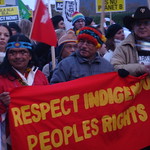9th August 2025, International Day of the World’s Indigenous Peoples: Preserving Rights, Traditions and Sustainable Futures

Every year on 9 August, the United Nations commemorates the International Day of the World’s Indigenous Peoples, marking the first meeting of the UN Working Group on Indigenous Populations in 1982 and the establishment of the observance by UN resolution 49/214 in 1994.
UNESCO highlights this occasion by featuring stories, projects and cultural expressions relevant to the annual themes. In 2025, the focus lies on acknowledging Indigenous communities as guardians of biodiversity, holders of traditional knowledge, and agents of social transformation.
Estimated at approximately 370–476 million people across more than 90 countries, Indigenous peoples preserve a rich diversity of thousands of languages, cultural practices and systems of knowledge, even as they face threats such as marginalisation, land dispossession and loss of heritage.
UNESCO’s work on this day includes amplifying initiatives and narratives that showcase how Indigenous knowledge systems—particularly those of women and youth—can contribute to achieving the Sustainable Development Goals (2030 Agenda) through sustainable land stewardship, cultural continuity, and resilience strategies.
This anniversary ties in perfectly with the theme “When ‘the other’ is Mapuche!”, written by Valentina Viviani, which invites understanding of the Mapuche culture and their millennial resistance to the loss of territory and forms of marginalization. The Mapuche embody the link between ancestral traditions, environmental justice, and sustainable development, which are also central elements in UNESCO's approach to International Day.
On the occasion of the International Day of the World’s Indigenous Peoples, it is essential to renew our commitment to recognising and protecting the rights of Indigenous communities, by listening to their voices and valuing their knowledge systems. Experiences such as that of the Mapuche people remind us of the importance of overcoming marginalisation, supporting self-determination processes, and building relationships based on respect, justice and sustainability. Celebrating this day also means reflecting on our individual and collective responsibilities in promoting a fairer, more inclusive and plural future.

